Billy Coffey's Blog, page 29
July 8, 2013
Anatomy of a good day

image courtesy of photobucket.com
Nothing says father/son bonding time quite like throwing stuff into a creek. Rocks, leaves, twigs, dirt, leftover acorns, whatever. There are few restrictions. So long as God made it and people didn’t, it’s considered current fodder.
We’re men, my son and I. He’s only nine, but he still feels the same male tendencies as his father. Which means any talk must be done under the cover of some activity that will dull the sneaky suspicion that something is being shared.
Men are generally fickle when it comes to sharing. Tools and trucks are one thing, thoughts and feelings quite another. The former may be doled out to any and all. The latter is reserved for only those closest to us, and then only maybe.
My son lifts a rock the size of a softball and heaves it into the water. The resulting splash covered the bottoms of our jeans and most of the wildflowers on the opposite side.
“Nice one,” I say.
With bellies full of dinner and the sun yawning over the mountains, this is the time of day when a certain amount of reflection is in order.
“How’s your day, bud?” I ask.
“I dunno,” he answers, this time dropping a handful of pebbles into the water, giving the sound of a miniature machine gun.
“Didn’t you have a good day?” I ask.
“Dunno,” he says again, now plopping a twig into the current and marveling as it gets marooned in a small whirlpool.
Like I said—thoughts and feelings are not the normal male’s strong suit. Better to throw stuff and make big splashes.
Then, just as I’m about to toss another rock as well, he says, “Daddy, what’s a good day?”
What’s a good day? What kind of a question is that?
Then again, when you’re nine years old and enjoying a lazy summer of sleeping in, eating sno-cones, and throwing stuff in the creek, it’s easy to misplace the notion of what makes a good day. Because that’s what every day is.
Grow up, however, and that all changes. There are bad days aplenty. Sure, there are some who say every sunrise is cause for celebration. Every day is a good day. And to them I say bull. I’ve had some truly awful days in my life, and having the knowledge that I was alive to face them did nothing to make things better.
Still, whether a day is good or bad is not just a matter of whim and circumstance. Certain ingredients are necessary. Things we must add in equal portion and in a timely manner that determine whether our days rise or fall.
“What’d you do today?” I ask him.
“Stuff,” he says, crouching down to stare at the minnows.
“Like what?”
“I watched cartoons until Momma said to play, then I played until I tripped over my Legos. That hurt. I didn’t cry, though.”
“That’s okay,” I tell him.
“Then Momma said to clean my Legos so I don’t trip over them again, so I did. It was a mess Daddy. And then I helped her pull some weeds. Then we ate lunch. I said the prayer. And then I just chilled. Did that mean I had a good day?”
I think about that while we toss more rocks into the water.
We believe a day is good as long as it’s filled with more excellence than failure. Lots of sunshine, little rain. But I don’t think so. I think a good day is one that achieves a certain balance, one that allows us to see as big a glimpse of life as we can get in twenty-four hours.
A balance like laughing at cartoons and wincing over a stubbed toe. Because seeing the joy in life doesn’t always mean avoiding the pain. Sometimes it means crying first and laughing second.
Or a balance like doing for yourself like cleaning your room, but also doing for others like snapping some beans.
It can be a balance like playing hard and resting easy.
And both acting and praying.
Balance. Yes. That’s what makes a good day. Which I guess places most of the responsibility on our shoulders, because in the end our lives depend much more upon what we do than what is done to us.
He tosses one more rock into the creek and looks at me for approval.
“I think you had a great day,” I say.

July 3, 2013
O’er the land of the free

image courtesy of photobucket.com
I’ve heard there are grumblings that “The Star Spangled Banner” should be removed as our national anthem. It’s too antiquated, those grumblings say. And the words are not only hard to understand, but hard to sing. What kind of national anthem do you have if it’s hard to sing?
And to tell you the truth, some of those grumblings are right. I’ve heard the anthem positively butchered by well-meaning folks who were simply mystified by the phrase “O’er the ramparts we watched were so gallantly streaming.” I couldn’t sing that, either.
That isn’t to say, though, that I’m all for replacing the words of Mr. Francis Scott Key with “My Country, ‘Tis of Thee” or “America the Beautiful.” I’m not. I like things the way they are just fine. Not because I love our anthem. Not because I love the words.
But because it’s endured.
We are a people who look ever forward. Hope and change are our new touchstones, and neither of those are readily found by glancing over our shoulders. No, the promised land of better times lies ahead. Just there, over the horizon.
We say that the past doesn’t matter, just the future. Not where we’ve been, but where we’re going. And while that may be correct in some aspects, it isn’t in others. In many ways the future is dependant upon the past, and you don’t know where you’re going unless you take a look behind to see where you’ve been.
That’s true in both the life of a person and the life of a country. We are not the product of our tomorrows, but our yesterdays. The freedoms we enjoy may be sustained by the continued sacrifice and vigilance of today, but they were granted by the courage of those who have gone before us. Men who held firm to the believe that freedom was worth persecution and that death should be favored over oppression.
Men who put country and people ahead of party and self. Who believed leaders were not above the public but subject to them.
Who believed that the ultimate authority was not themselves, but God.
That we continue to cling to what some see as a worn and outdated song for our national anthem is to be reminded that there was a time in our country when such men existed. Perhaps that’s why there is this slight but steady push to modernize the singing of praise for our country. It will help us cope with the knowledge that such men seem to be more difficult to find now.
Whereas our leaders of yesterday are revered, our leaders today are ridiculed. Our trust with those first great Virginians, Washington and Jefferson and Madison, have been replaced by a mistrust for those who lead us today. This, I suppose, is inevitable. The natural consequence of favoring a winning smile and a photogenic face over substance and wisdom.
Those ideas of freedom and liberty that inflamed the hearts and minds of our forefathers seem to have burned to embers now. What caused them to stand and fight now allows us to sit and rest.
So this Fourth of July weekend when we’re surrounded by the present and looking forward to the future, perhaps it would do us well to pause and look back, far back, and remember the kind of people it took to found this country. Because that is exactly the kind of people we need in order to continue it.
Let the words be sung, and let that flame of freedom and liberty ignite again. Let us all make sure that when the question is asked, “O! say does that star-spangled banner yet wave O’er the land of the free and the home of the brave?” the answer will always be yes.

July 1, 2013
Amish family reunion
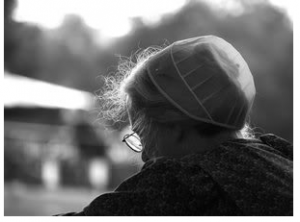
image courtesy of photobucket.com
I spent much of this past weekend at the Amish church along the edge of town, attending a family reunion that turned out to be larger than anything I could have imagined. Uncles and aunts, brothers and sisters, and more second cousins than I can remember. All descending upon that quiet little church with the softball field and the see-saw, and an ancient blooming oak that looked down upon us all.
My mother’s maiden name is Kanagy—a proper Amish name if you’ll ever hear one, right up there with the Yoders and Schrocks and Zooks. The family center is still in Lancaster County, though the years have flung the Kanagys to all corners of the country. It was a strange thing, hearing that. The Coffeys have always been in these mountains. We always will. I suppose it’s an unwritten rule that we should never roam far from our family’s bones. And yet Saturday we parked near vehicles from Kansas, Colorado, and Delaware. Sunday, it was mostly Ohio.
Many of them I’d never seen (though many remembered me as a child, one even commenting on numerous occasions that I smelled very good as a baby—a tidbit of information that never failed to make my son giggle). Others I’d seen only in passing and only years before. And yet all of them looked familiar in the way family always does, whether it was the way all of their faces had the same shape or the way everyone’s laugh seemed to lilt at the end. We all shared something important. We wandered and mingled and introduced ourselves, and we all felt that tugging of a thin cord wound around us all, placed there by some long-ago kin.
Not that things always went so smoothly. My mother’s Amish heritage gave way to the Mennonite faith when she was a child. The Mennonite in her fell away (at least in practice) not long after she married my father. I was raised more conservative country than conservative Mennonite, which was why my family showed up in jeans and capris rather than the accustomed plain blue pants and white shirts, or the plain blue dresses and white bonnets.
 (Also this rather important point: If you should ever find yourself in the company of a hundred Amish and Mennonite people and you yourself are neither Amish nor Mennonite, take care to cover the ginormous tattoo running from your shoulder to your elbow. This, I found out the hard way.)
(Also this rather important point: If you should ever find yourself in the company of a hundred Amish and Mennonite people and you yourself are neither Amish nor Mennonite, take care to cover the ginormous tattoo running from your shoulder to your elbow. This, I found out the hard way.)
So yes, there was some getting used to things. But the vast majority of my distant relatives were more than happy to put our outward differences aside, eager to use the opportunity as a chance to see how the other half lives.
I was pleased to find many of them had kept up with my wife and children and had read my books. Just because you’re Amish doesn’t mean you’re dim. Indeed, the Kanagy’s are an intellectual lot; in my wanderings around the reunion, I met several preachers and one college professor. Reading is considered not only necessary, but pleasurable. The classics are most encouraged. Dickens is widely read.
(Which brings another rather important point: Amish people do not read Amish fiction. In fact, many of them had never heard of such a thing— its mere mention brought the very same shock and laughter my son offered when he heard I’d smelled excellent as a baby.)
I imagine much like most families, what truly brought us together was the food. Your typical Amish fare—bean soup, moon pies, barbequed chicken, fresh bread, and spearmint tea made to such perfection that I could not help but drink it and think of my own grandmother. We stood in that gathering hall to pray and we said our amens, and when we sat to eat we found that despite all of our differences, we were still all the same. Because that’s when the tales began.
One after another, each fired in succession. Tales of days gone by and times when the world seemed a better, fresher place. The hardships endured. The ones who have gone on. The ones who have come to take their place. And when we shared each of these things we shared not only our memory, we shared ourselves.
I won’t see many of them again until the next reunion. Though from what I hear, this one may be the last. Too many of my relatives have grown too old. The distance is too great between us for the traveling. Its wearying to the bones.
If that’s the case, I can rest knowing I spent my time wisely this past weekend. I learned much of my past. And I learned this as well: what binds a family together is a thing deeper than blood and body, it is story. And that is the story of us all.

June 26, 2013
Prayer adjustments
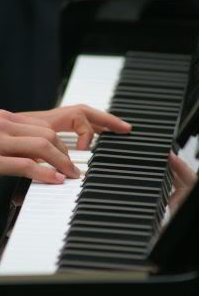
image courtesy of photobucket.com
It was a big deal for my daughter and me, a couple Saturday’s ago. We’d been skittish for most of that day. She battled nerves over participating in her first official piano recital. I battled my apprehensions because that recital was to take place at the local nursing home.One small story first:
I was in kindergarten when my teacher decided it would be a grand idea for the class to make Valentine’s Day cards for the elderly. We plunged into the task with all the gusto five-year-olds can summon, after which we were herded onto a school bus and trucked down to what my teacher called “The Rest Home.” The name conjured all manner of fantastical images in my mind, all of which were proven false once I walked through those old wooden doors. The nurses had gathered everyone in a gathering room that was much less stately and much more moldering, where I was greeted immediately by an old man with hooks for hands (and no, I’m not kidding). The sight froze me such that the other people in class quickly distributed their cards to the nearest person and made a quick exit, leaving me all alone. I heard a murmur to my left and turned there, seeing a hand stretched out. I shoved my card into a set of bony fingers and looked up just long enough to see the woman to which I’d just wished a happy Valentine’s Day didn’t have a right eye, only a patch of red, seeping skin. For months, I prayed at night for God to never let me end up like that woman. The memory haunts me to this day. It’s proof that much of the weight we carry in our hearts has been there in some form for a very long while.
That’s what was in my mind during most of that Saturday. Sitting there on the sofa, listening to my daughter practice.
It’s also why I kept near the doors when we arrived that afternoon. Go ahead and judge me, I don’t care.
The gathering room stood empty but for the twenty or so chairs that had been laid out in neat rows. The concertgoers trickled in after—men and women dressed in khakis and dresses, combed and perfumed and bejeweled.
And you know what? It wasn’t bad, not really. They were smiling and talking and happy. They were, as far as I could tell, nothing more than a collection of friendly grandparents.
That all changed when a nurse pushed in the woman in the wheel chair.
Her hair was thin and the color of snow, arranged in a what reminded me of an abandoned bird’s nest. Beneath her white slacks and blue shirt laid the remains of what I imagined to be a vibrant and healthy body once upon a time, but was now little more than a thin layer of dried, leathery skin over frail bones. And right there by the doors, I prayed that I would never end up like that woman.
The nurse wheeled her into the first row as the recital began. One student after another, fingers dancing and sometimes tripping over the keys. The room became filled with applause. Only the woman in the wheelchair did not move. Her head lolled from side to side. I supposed that was the closest she could come now to clapping, and I prayed I would never end up like her again.
My daughter did well. Magnificent, in fact, though I am perhaps a bit biased. But I don’t want to talk about the songs she played or how straight she sat or how she really nailed the ending to the Flintstones theme song. To be honest, I barely noticed any of that. I was too busy watching the woman in the wheelchair.
It was in the middle of my daughter’s second song when I looked at the woman again, and only then because of the thin stream of drool leaking from her mouth. But before I could turn away, I noticed her fingers moving along her chest, playing the keys in her mind. She kept perfect time with my daughter’s song, even caught the parts my daughter missed.
And I realized then that she may have been confined to both a wheelchair and a fading life, but she was still hearing music. She was still playing her song, even in the wan of her life. And can any of us truly strive for more in this life? Could our prayers truly ask for nothing else?
Me, I don’t think so. I think that lovely old lady is better off than a lot of us. Which was why that night and every night since, I’ve asked God to let me end up like her.

June 24, 2013
Errant negotiations
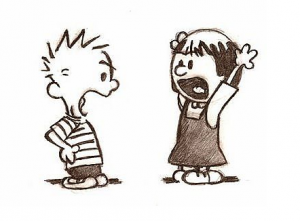
image courtesy of photobucket.com
My children are arguing.
Not exactly breaking news, of course. Kids fight. It’s one of those givens in life that are about as surprising as the sun rising in the morning or a hot day in July. Blame it on summer vacation. I think they’re just tired of each other.
I’m not sure what caused the conflict; I just got home from work and caught the tail end of it. Something to do with Legos, from what I gather. Or an errant water balloon. One of those. Or maybe it was something else all together. You never can tell with kids. Kids can argue about anything.
I get caught up to speed by my wife, who doesn’t really know what the conflict is about herself. She was in the kitchen fixing dinner at the time. There was just a thump and a scream, followed by yells and accusations. That was enough for her. She sent both of the kids to their rooms to calm down.
I walk down the hallway to their bedrooms to say hello and gauge the amount of weeping and gnashing of teeth and find the Go To Your Room rule broken. My son is in my daughter’s room. She’s sitting Indian-style on the bed. He stands in front of her. Both are talking. Each have their arms crossed.
These are some serious negotiations, which is why I don’t barge in, make a Daddy Arrest, and charge them with not abiding by their mother’s wishes. It isn’t often that I have the opportunity to listen in on my children’s discussions. More often then not, they clamp up as soon as I enter the room and offer little more than, “Yes, Daddy?” I get plenty of opportunities to learn about what they think and believe in my conversations with them, but most times that seems like only half the story. What you think and say when your father or mother is around is often quite different than when it’s just you and a sibling in the room.
So I put my daughter’s bedroom wall between us and listen.
“I didn’t hit you on purpose,” my son says.
“Yes you did,” says my daughter. “You liked it. I saw it in your eyes.”
“You can’t see in my eyes. And you should have gotten out of my way.”
“I didn’t want to. It’s MY house too, you know.”
I’m not going to play anymore until you say you’re sorry.”
“Well I’M not going to play anymore until YOU say YOU’RE sorry.”
“All I was trying to do was get a Lego.”
“Well all I was trying to do is get a Lego, too.”
And on. And on and on.
Rather than interrupt, I decide to let them be. My kids will work this out, they always do. And then things will be fine until the next skirmish. I suspect my home isn’t much different than any other in that peaceful times are merely those few quiet days between wars of both opinion and blame.
In the meantime, I retire to the television and the evening news. Which, by the way, is much the same news as yesterday and the day before. Still the arguing, still the blaming. The system is broken, they say. I’m inclined to agree. Especially since the people who made the system are broken as well.
A commercial appears, one of those thirty-second spots about scooters old folk can ride around in to make themselves feel useful again (free cup holder included!).
The news is back, this time given by a pretty blond rather than a non-pretty man, as if bad news could seem a little better if she is the one telling it. She wonders aloud how we fix the problems in Washington, then poses the question to an educated man in a pair of thick glasses.
That’s when I turn the television off. I don’t need to listen to a pretty blond or an educated man to know how to fix things. I already know fixing them is pretty much impossible.
Because in the end, we’ll always prefer arguing rather than talking.
And we’ll always choose stubbornness over compromise.
We’ll always strive to reinforce our own opinions rather than admit those opinions might be wrong.
Call me pessimistic, that’s just how I see it.
Because our politicians really are representative of us all, if not in political philosophy than in brokenness.
Which means the adults we send to Washington aren’t really all that different than the kids we send to their rooms.

June 20, 2013
Unfinished
 For the past three years we have vacationed on an island off the North Carolina coast. Seven days of sun and surf and all-around laziness. Most times, we exert ourselves only to the point of walking along the beach to scoop up shells and applying aloe to our sunburns. In other words, it’s perfect.
For the past three years we have vacationed on an island off the North Carolina coast. Seven days of sun and surf and all-around laziness. Most times, we exert ourselves only to the point of walking along the beach to scoop up shells and applying aloe to our sunburns. In other words, it’s perfect.
Usually around the third day I start thinking about the life I’ve left behind. The one of deadlines and must-do’s, of chores and timetables. It isn’t a longing to return to that world, never that. It’s more that growing pile of work that I know must be done, and how tall that pile is getting each day I’m away.
The emails that aren’t being answered. The chapters that aren’t getting written. The grass that isn’t being cut and the garden that isn’t being weeded and the job someone else is having to do and on and on.
Someone once told me I would know I’d become an adult when the days all melted into one eternal Monday. I don’t think that’s true. I think you know you’ve become an adult when you realize the break you take from your responsibilities isn’t really worth it, because there will be twice as much waiting for you when you get back. You realize the gray, drably life you live in isn’t much, but it’s better than none at all.
However.
This year, things have been different. And it’s all because of the little guy you see to the right of this post.
Our new neighbors moved in just a few days ago. Him, a brother, mom and dad. Squatters for the most part, though no one seems intent on kicking them out. They’ve made their home beneath a tangle of pines between the two dunes just off our balcony.
I’ve watched them since from my perch on the second floor. The four of them rise early, just before the sun. They will stretch and sniff and take in the new day with an air of thankfulness before picking at the sea oats and grass. They never overindulge, only take what they need to fill their bellies. They take care where they step, and when they move, it is always with an air of grace and confidence. After, the children will play while the parents watch, and when the air turns hot and the winds gather, they’ll bed down for the day beneath their pines. The entire process is repeated in the cool of the evening, at which point we’ll all bid them a goodnight.
That is the life of the deer outside our window. And as I’ve studied them these past four days, I’ve decided they are not inferior beings at all. In many ways, they are smarter than I am. In many others, they live better than I do.
Because I could learn to indulge myself only to the point of being full and no further, leaving a bit of joy for others to relish. And I could do a better job of navigating the slopes and ridges of my own world—using a gingerly step rather than charging through, perhaps. Or looking twice and then leaping gracefully.
I could learn to rest when the hard winds blow.
Hunker down more with my family.
And I could greet each day with an air of thankfulness, because despite the gray and drably lives we lie ourselves into believing we possess, we are surrounded by beauty and grace and wonder because those things live within us as well.
Today we rose with the sun and walked along deserted beaches laden with the spoils of low tide. We saw crab and fish and treasure. We navigated a sand bar that stretched nearly half a mile into the horizon just to find a shark tooth. We bid good morning to our neighbors as we crossed the bridge by their pines. And not once did my thoughts wander to all those unfinished things I’d left behind at home. I was too caught up in the understanding that I was unfinished, too.

June 17, 2013
Closer to our better selves
 For one week a year I exchange the mountains of Virginia for the shores of North Carolina. That’s where I’m sitting right now—sheltered beneath the cover of the back deck, with a family of deer, four sand dunes, and the Atlantic all in front of me. This little island has become more than a vacation spot for my family these past years. It’s been made into a place for us all to take a deep breath from our lives. We set our trifles aside here and concentrate on the big things.
For one week a year I exchange the mountains of Virginia for the shores of North Carolina. That’s where I’m sitting right now—sheltered beneath the cover of the back deck, with a family of deer, four sand dunes, and the Atlantic all in front of me. This little island has become more than a vacation spot for my family these past years. It’s been made into a place for us all to take a deep breath from our lives. We set our trifles aside here and concentrate on the big things.
We’re not the only ones, either.
We’ve been here three days now, long enough to meet and greet the neighbors. The couple who each morning stake the plot of sand fifty yards to our right are here to celebrate their fifty-seventh wedding anniversary. Nice folks, both of them. They arrive early, just after the sun has risen, him carrying two chairs and a small umbrella while she tarries behind with a cooler full of sweet tea. There they’ll sit long into the day, staring out over the water. Few words pass between them. At some point, his right hand will stretch out and touch her left. He told me they’ve been coming here for decades, ever since their son and daughter were small. Those were the years before the troubles, he said—back before they lost their son to a motorcycle accident and before the falling out with their daughter. She’s in Oregon now, married twice and divorced once, with grandchildren neither of them have ever seen. It’s just them now, sitting on the beach with the wide ocean in front of them, holding hands.
The family to our left is an active lot. Mother, father, and three young kids. They do everything—swim and boogie board and hunt for shells. Yesterday, they managed to construct a world class sandcastle. The vast majority of these activities are the father and childrens’ to do alone. Mom spends most of her time sitting in the chair beneath a blue and yellow umbrella. She wears a scarf to cover her bald head. The doctors say her cancer is gone now, just as they said it was gone five years ago. They’ve all reached the silent conclusion the disease will be a specter that follows her for the rest of her life. She smiles and laughs often despite of that. Or, perhaps, because of it.
I could go on, tell you about the twenty-something young man in the home nearby, hiding not from a person but from a future he isn’t ready for. He spends his days kite surfing and his evenings sitting in the sand, watching the tides go out. Or I could talk about the widow who brings her husband’s German shepherd out to play in the surf every morning, or the grandpa who hikes up his jeans so he can wade into the water in search of a mystical starfish. There are a thousand stories here because there are a thousand people, and we are all different in who we are and what we do but we are also all the same. For this one week, we are all just a bit closer to our better selves. Not whole, because we’re still broken. Not at peace, because such a thing cannot truly be found this side of heaven.
But close? Yes. Close enough.
And sometimes, that’ll do. That’ll do just fine.

June 12, 2013
My network debut
Yesterday morning I left the comfort and security of my home town and drove to the bustling metropolis of Richmond, Virginia. The purpose of my visit was an interview on WTVR Channel 6′s Virginia This Morning. I was a nervous wreck, but the folks couldn’t have been nicer.

June 10, 2013
June 11, 2013: It’s Pub Day!
Today marks the publication for my newest novel, When Mockingbirds Sing.
“Pub. Day” is always a pretty big deal in a writer’s life. It’s the culmination of a lot of work, a lot of time, and—in my case—a lot of prayer. Now it’s time to release it to the world. Treat yourself to a copy, won’t you?
You can find it at your local bookstore in the Christian Fiction section, or with a few clicks one of these fine online retailers will send it to your home or your e-reader:
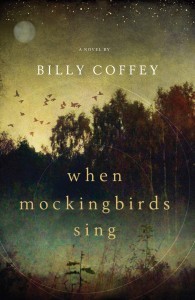
and Walmart (or as it’s known in Mattingly, the SuperMart)
There are also some giveaways around the interwebs this week. Katdish is giving away a copy that I’ll sign for you personally, and I’ll try my best to post all the links on my Facebook Author Page.

June 6, 2013
Signposts
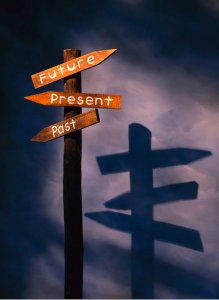
image courtesy of photobucket.com
My daughter graduated today.
Walked across the very raised stage that innumerable others have crossed over the years. Strolling fast and hard, as though with a holy purpose. Her smile wide and bright as she ended one part of her life to embrace the next.
It was tough, no doubt about it. The first time I’ve had to go through something like that with one of my kids. You think you’re going to be okay, but you’re not. I imagine it’s much like walking over a bed of hot coals—you can steel yourself all you want, but nothing can keep you from that initial shock of pain, that sense of being in a situation that just may be bigger than yourself.
I pulled it off well enough, though. I smiled and waved and cheered, and during those few times when I could help myself, I lowered my head and clenched my eyes tight. No one saw this. I at least have that. In my mind, that still makes me Daddy in my daughter’s eyes. I’m still her rock, even if today showed all those cracks I try to hide. So no, I wouldn’t say it was all a total success on my part.
If there is any comfort to be had, it’s that I’ll have plenty of other opportunities to get things right. There will be more next-time’s. This was, after all, only her fifth grade ceremony. Call it a practice run for greater things down the road.
In three years comes her junior high graduation. Four years after that, she’ll leave high school.
College will follow. Then graduate school, if she has her way.
There will be her wedding one day. Her first child. All the children after.
These are all tiny moments really, at least with regards to time. Nothing more than a few hours in the long years of my daughter’s life. But big moments, too. The kind that define the people we grow to become.
Funny thing about life—we trick ourselves into believing there is one birth at the beginning, one death at the end, and in the middle only a long line of rises and falls. I don’t think that’s true. I think we have a great many births and deaths in life. We all are aware of those instances when something inside of us passes on so something greater can be born.
These moments like today with my daughter? They become signposts. Their light burns long after we’ve moved on. They serve as a witness to how far we’ve truly come in our lives, something we can look back upon in those tedious times that come to us all.
I plan to be there with my daughter as she meets her own signposts. I want to stroll beside her as she takes her first steps upon the long road of her life. Because that road gets lonely sometimes, and dark. There are shadows and thickets. Sometimes, there are monsters. I know this is true. I think we all do. Maybe that’s why I lowered my head and clenched my eyes. Because I know what’s out there, and because I know it doesn’t matter how big my daughter grows or how old she gets, she’ll always be my little girl. And I pray that when her way grows weary and her walk long, the hand she will always reach for will be my own.




